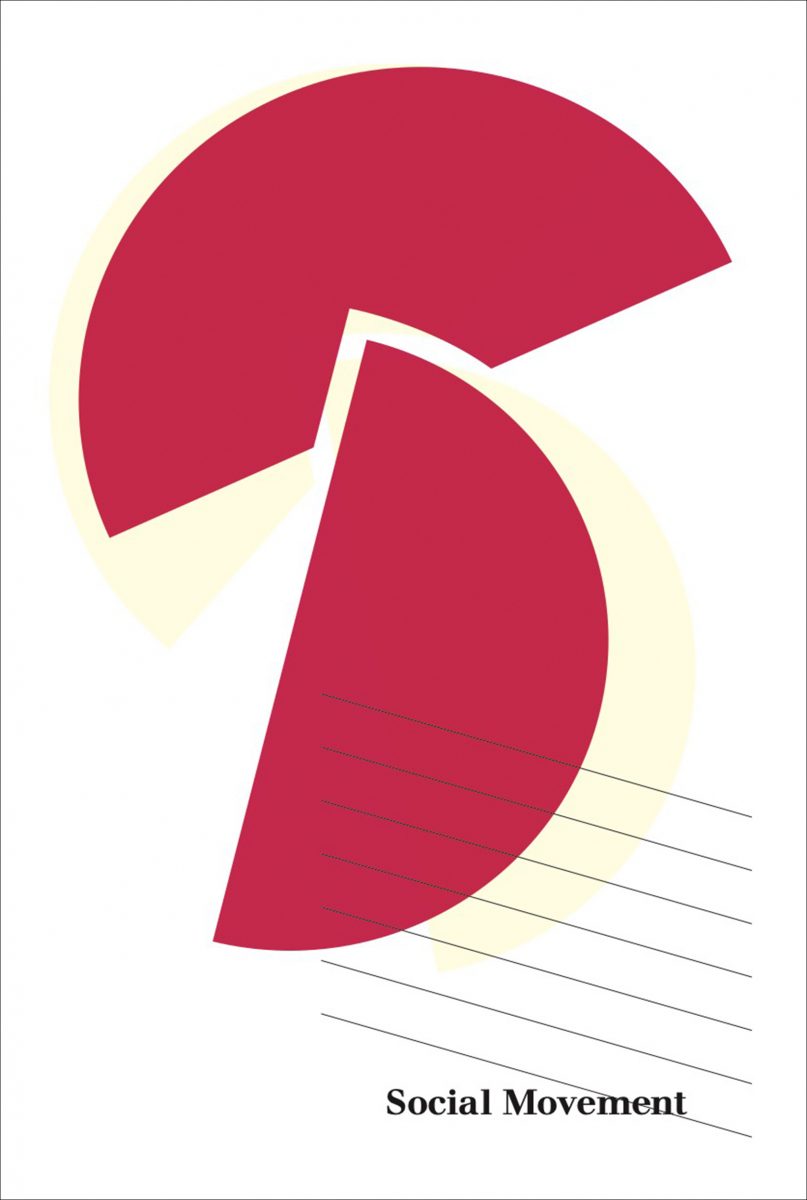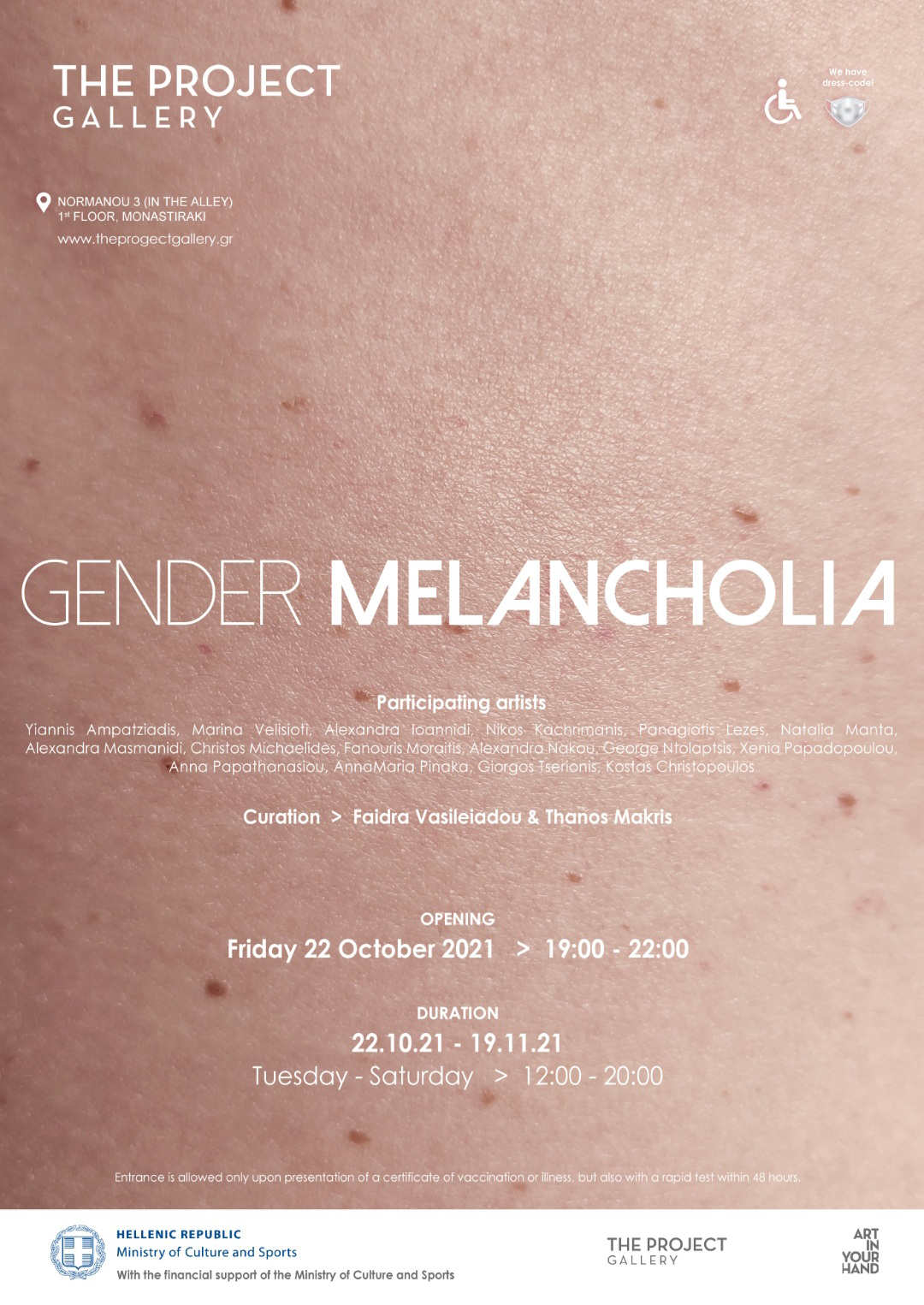Gender Melancholia
Melancholy and Gender – The Melancholy of the Body
In the present exhibition, an attempt is made to research the vague boundaries of gender, as it is structured socially (gender) and biologically (sex). We shall explore gender identity as a product of social interaction and therefore how gender and self-construction – self-perception – can lead to social distancing. Within this context we are juxtaposing the Freudian theory of mourning and melancholia with the “Gender Melancholia”, aiming at tracking the differences and the connections between the two. The trigger point of this documentation is in a way need to update -in the sense of a revision- important theories and their reference to the current situation. In another timeframe from Freud, Judith Butler sets her own view on the matter on Gender Trouble: Feminism and the Subversion of Identity, a cornerstone of gender studies and the queer community. With our current visual undertaking, we will try to identify the issue of gender construction in a patriarchal and male-dominated Western society and how Gender Trouble has become a “Bible” of sexuality in the feminist as well as post-feminist view of gender. Important views such as Freud’s Mourning and Melancholia and Butler’s Gender Trouble provide a field for research regarding a possible connection between the paradigm of the post-modern of COVID19 era and the social distancing between the sexes.
In conclusion, the present exhibition of “Gender Melancholia” attempts to scout the vague boundaries of gender, as they develop with the new reality of the COVID19 era, which often flirts with the Depression era. “Gender Melancholia” aims at creating a dynamic visual dimension within which the search for ourselves, our gender, our sexual and romantic orientation shall move forth. The question of whether there will be a post-COVID era, whether social distancing and self-isolation will be maintained, will be recorded in the historiographical narratives of the next century. Until then, it makes sense to try to create fertile ground for ideas and theories so that a poem, an essay or a work of art shall bear fruit.
Artists |Yiannis Ampatziadis, Marina Velisioti, Alexandra Ioannidi, Nikos Kachrimanis, Panagiotis Lezes, Natalia Manta, Alexandra Masmanidi, Christos Michaelides, Fanouris Moraitis, Alexandra Nakou, George Ntolaptsis, Xenia Papadopoulou, Anna Papathanasiou, AnnaMaria Pinaka, Giorgos Tserionis, Kostas Christopoulos
Curation | Faidra Vasileiadou – Thanos Makris
Opening | Friday 22 October 2021 | 19:00 – 22:00
Duration | 22.10.21 – 19.11.21
The Project Gallery, Normanou 3 (in the alley) 1ος floor, Monastiraki
www.theprojectgallery.gr
‘Who Am I Doing This For? : The Dirty Subjectivities of AnnaMaria Pinaka’, ASAP/Journal, Vol.5.1 (2020): 1-18 Johns Hopkins University Press.
Appointed seasonal tutor of Artistic Research at BA Fine Arts
Appointed Co-course Leader of the Visual Arts and Post-Contemporary Practice, Master Institute, AKV / St. Joost Academy of Art and Design, Hertogenbosch (NL)
Teaching modules:
- Porno-graphing: ‘dirty’ subjectivities & self-objectification in contemporary lens-based art
- Self-Doubts
With contributions by Ken Plummer, Susanna Paasonen, Tom Roach, Shohini Ghosh, AnnaMaria Pinaka (et al.)
Communication Studies, Film & Television Studies, Women’s And Gender Studies: LGBT Studies
624 Pages, 6.25 x 9.25
88 photos
ISBN 9780773559394
November 2019
‘In the postwar decades, sexual revolutions – first women’s suffrage, flappers, Prohibition, and Mae West; later Alfred Kinsey, Hugh Hefner, and the pill – altered the lifestyles and desires of generations. Since the 1990s, the internet and its cataclysmic cultural and social technological shifts have unleashed a third sexual revolution, crystallized in the acts and rituals of confession that are a staple of our twenty-first-century lives.
In I Confess!, a collection of thirty original essays, leading international scholars such as Ken Plummer, Susanna Paasonen, Tom Roach, and Shohini Ghosh explore the ideas of confession and sexuality in moving image arts and media, mostly in the Global North, over the last quarter century. Through self-referencing or autobiographical stories, testimonies, and performances, and through rigorously scrutinized case studies of “gay for pay,” gaming, camming, YouTube uploads, and the films Tarnation and Nymph()maniac, the contributors describe a spectrum of identities, desires, and related representational practices. Together these desires and practices shape how we see, construct, and live our identities within this third sexual revolution, embodying both its ominous implications of surveillance and control and its utopian glimmers of community and liberation.
Inspired by theorists from Michel Foucault and Gilles Deleuze to Gayle Rubin and José Esteban Muñoz, I Confess! reflects an extraordinary, paradigm-shifting proliferation of first-person voices and imagery produced during the third sexual revolution, from the eve of the internet to today’







